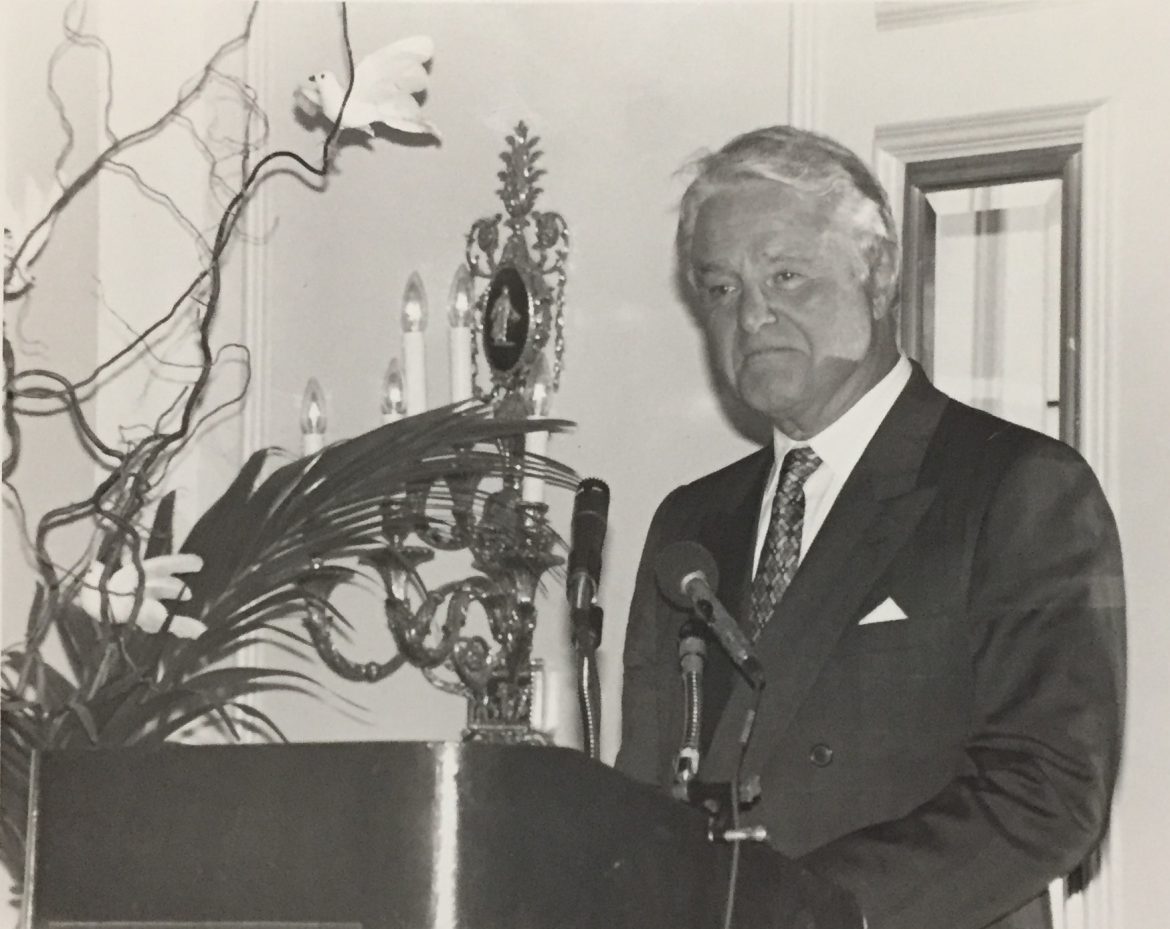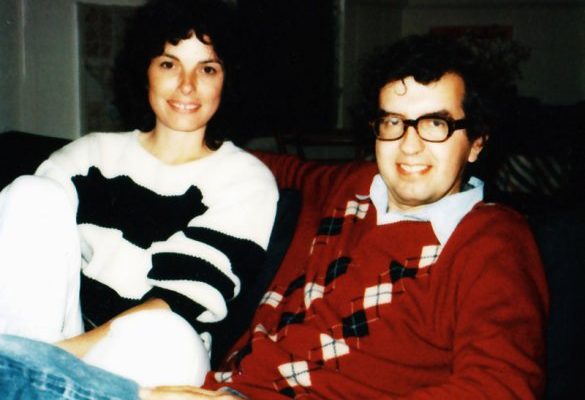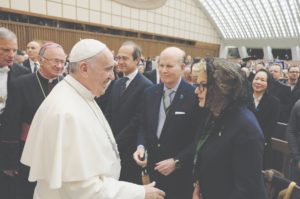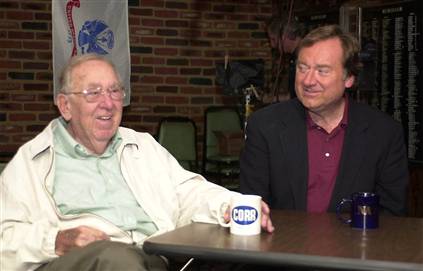At a Saint Patrick’s Day party at the White House during Clinton’s first term, I bumped into Sargent Shriver and introduced him to my husband as “the George Washington of the Peace Corps.” Shriver corrected me. “No,” he said, holding out his arm waist high. “George Washington was here.” Then he raised his arm above his head and said, “In the Peace Corps, I’m here!” He laughed so easily and so frequently, and he had such enthusiasm and energy, that he made the idea of service pure fun. And he was right about where he stood with so many of us former Peace Corps volunteers—he was our founding father, an icon. All you had to do was utter his name—Sarge—and it immediately stood for giving your all and being your best.
I was recruited into the Peace Corps at age 20, right off the Berkeley campus, by a loud southern guy with a bullhorn—he was to become the NBC reporter Douglas Kiker (years later we met as colleagues). Sarge had the ability to bring together all sorts of talented and sometimes offbeat people, and to convince them to try something they weren’t really planning to do.
I served in the Peace Corps for two years in Medellin, Colombia, and have remained involved with the community. I was in Medellin last week to help set up a third school for poor kids that is run by a foundation I created several years ago to provide students at all three schools with computers and training in English and leadership. It is a way for me to continue the work I did in the Peace Corps, and I thank Sarge for giving me the means to get along in exotic places, to speak Spanish, and to be a much better journalist, because I learned in the Peace Corps how to observe acutely and to understand issues from other people’s points of view.
Sarge was both brilliant and selfless—too selfless, some might argue, when it came to his own political career. His parents were Catholic intellectuals from aristocratic Maryland stock. They lost their money during the Depression and ended up running a Catholic bookstore where the ideas of social activists such as Sarge’s heroine, Dorothy Day, were profoundly influential. Sarge managed to go to Yale for both his undergraduate and law degrees, but he was often like the proverbial kid with his nose pressed against the candy-store window—although he was drop-dead handsome, everybody else had a lot more goodies.
After serving heroically in World War II as a naval gunnery officer—he was a deadly marksman whose ship, in one Pacific battle, shot down 32 Japanese planes in three hours—Sarge dropped law to become an assistant editor at Newsweek. During that job he met Joe Kennedy, who asked him to run “this building I just bought in Chicago”—it was the Merchandise Mart, the largest commercial building in the world at the time. By then he had met the forceful Eunice Kennedy, one of Joe’s nine children, by whom he had been immediately smitten, but she gave him a hard time for years before they finally married, in 1953.
There wasn’t a tough job that Sarge did not do well. When John F. Kennedy asked him to run the Peace Corps, he joked that J.F.K. had no choice but to give the job to a brother-in-law due to its enormous potential for failure. A few years later, Jacqueline Kennedy asked Sarge to arrange her husband’s funeral, and he did so flawlessly. After heading the Chicago school board and becoming a leading civil-rights advocate, he was frequently mentioned as both an Illinois gubernatorial and senate candidate. In 1964, Lyndon Johnson very much wanted Sarge to be his running mate, but the Kennedys said absolutely not—it was Bobby’s turn first. Then it was Teddy’s turn.
Sarge loved running the very popular Peace Corps, but he reluctantly quit when L.B.J. twisted his arm to head the War on Poverty. Democrat George McGovern turned to Sarge to run with him as vice president, in 1972, after Tom Eagleton dropped out when it was revealed that he had undergone psychiatric treatment, but they lost big-time. Sarge also served as ambassador to France, and in the last decades of his life he and Eunice founded the Special Olympics and made it a worldwide force for the intellectually disabled. He was the kind of husband who seriously thought his wife should be canonized by the Catholic Church; Sarge himself was so devout that even as he was ravaged by Alzheimer’s in his later years, the two things he never forgot were his prayers and his manners. “You’re a good looking kid,” he said to my son a few years ago as he stuck out his hand in greeting. “Are you my son?”
I loved spending time with Sarge—he was a wonderful father to Bobby, Maria, Tim, Mark, and Anthony Shriver, all of whom have distinguished themselves in service to others. For years they had to share him with thousands of Peace Corps volunteers for whom he was both a touchstone and an idealized father figure. It is hard to believe that today we can no longer have Sarge among us, exhorting us to “serve, serve, serve!”




